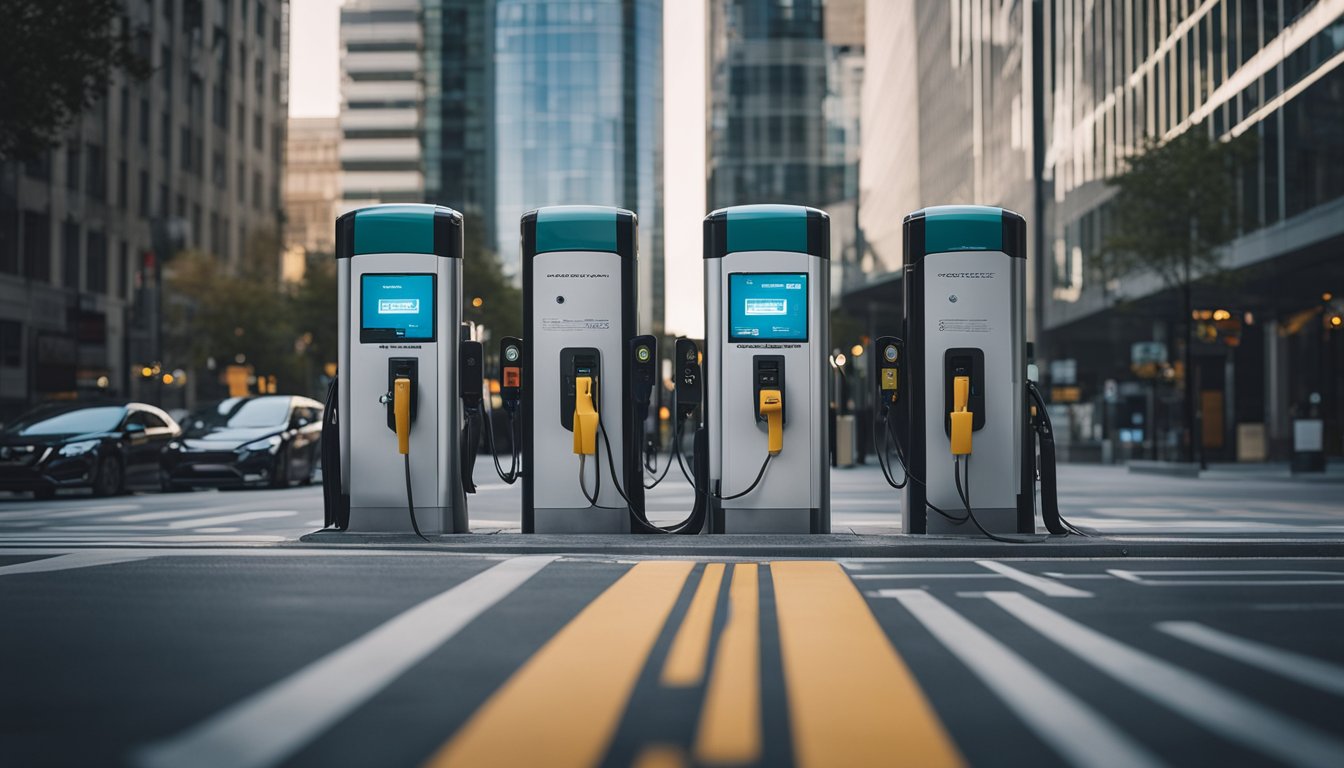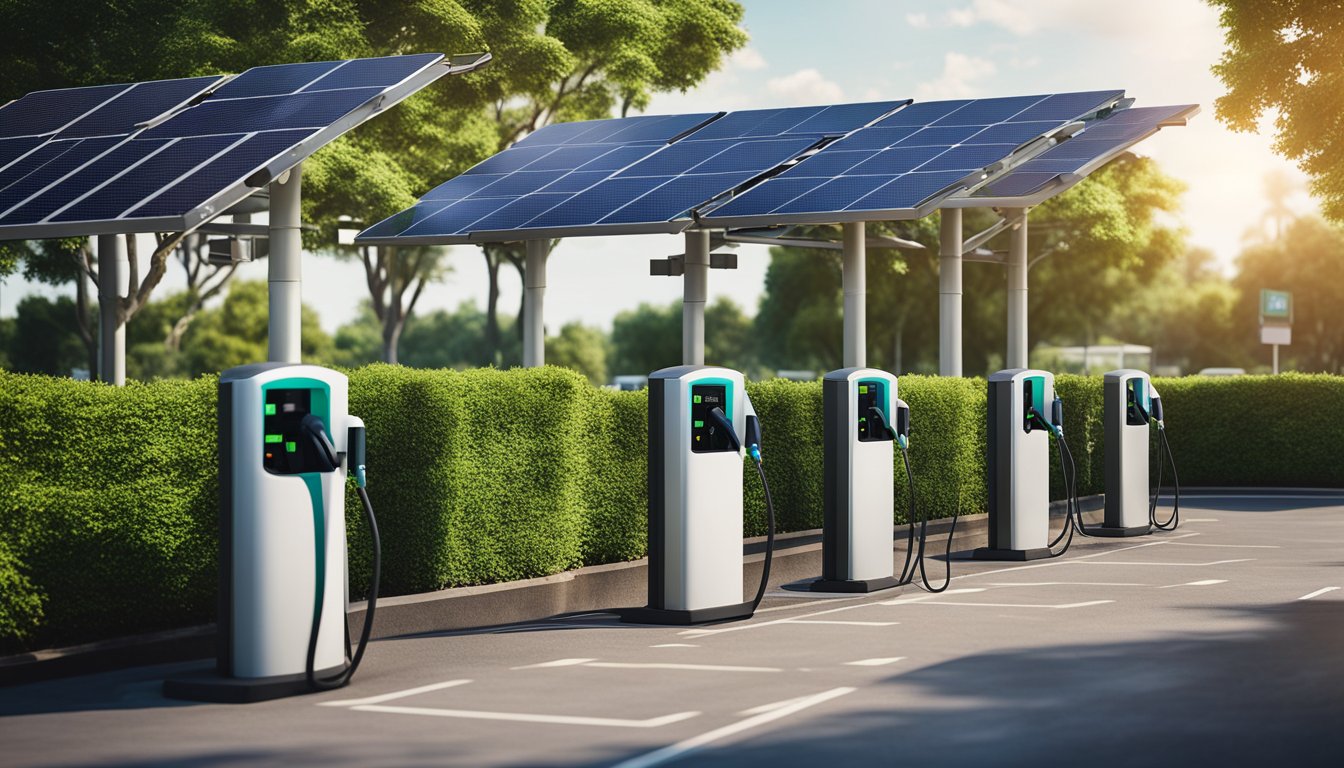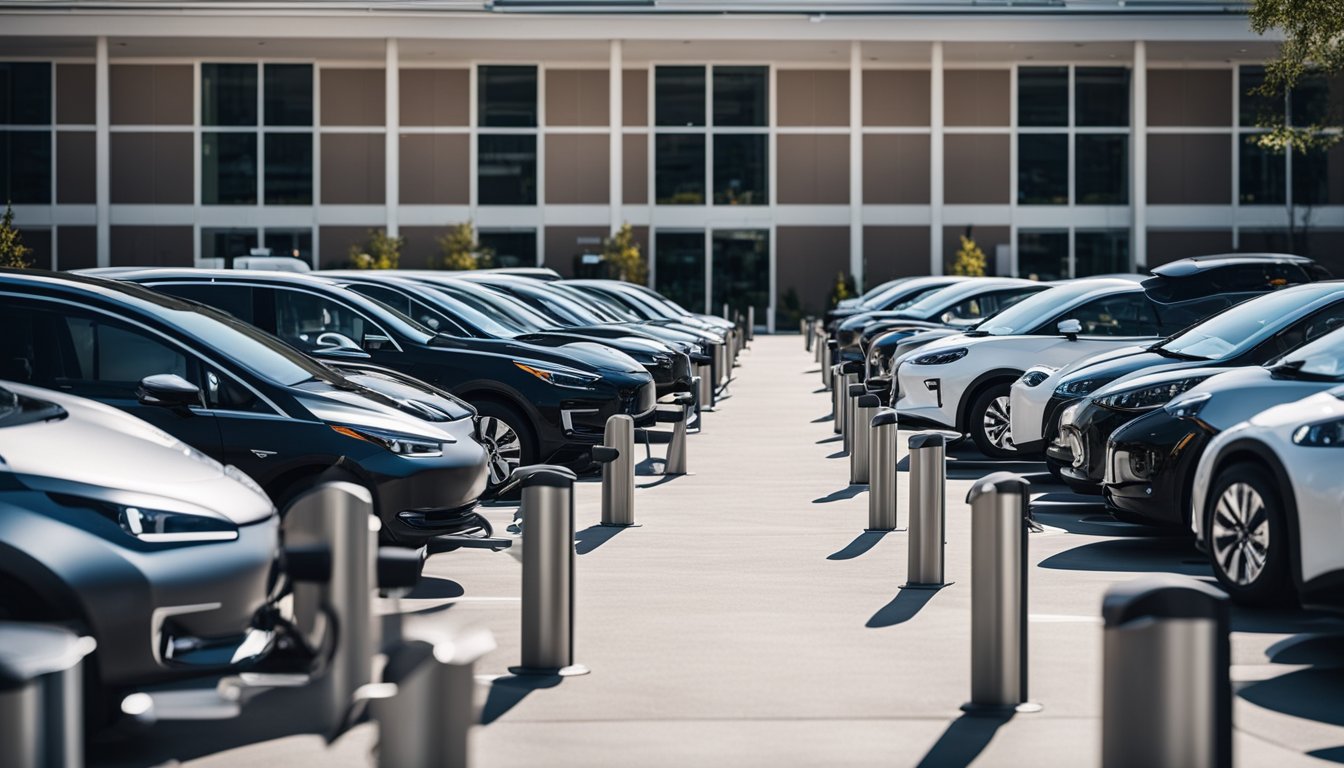Late updated: 09 Oct 2024 08:10
Written by: Amber Collins
Improving Business Efficiency With EV Charging Stations: A Strategic Advantage
Electric vehicles (EVs) represent a significant step towards sustainable transportation, and their proliferation has created valuable opportunities for businesses. By installing EV charging stations, businesses not only contribute to a cleaner environment but also enhance their financial prospects. EV charging stations can attract more customers, increasing foot traffic and spending at your business location.

Integrating EV charging infrastructure can directly boost business efficiency. Customers appreciate the added convenience, which can translate into longer stays and higher sales. Moreover, the potential tax incentives available for installing such infrastructure can lead to cost savings, further improving the bottom line.
We should also consider the long-term benefits of adopting this technology. As the market for electric vehicles continues to grow, being an early adopter of EV charging stations can set us apart from competitors. This forward-thinking approach demonstrates a commitment to both customer needs and environmental sustainability.
Key Takeaways
- EV charging stations increase customer visits and spending.
- Installing charging infrastructure can lead to significant tax savings.
- Early adoption of EV technology boosts brand differentiation.
Leveraging EV Charging Stations for Business Growth
Electric vehicle (EV) charging stations offer new business opportunities. They can enhance customer experience, generate additional revenue, and boost overall business efficiency. Implementing effective strategies is crucial for businesses looking to capitalise on these benefits.
Exploring Business Models for EV Charging Services
Diverse business models can leverage charging stations, each with unique benefits. One approach is the usage-based model, where customers pay per charging session or per kWh consumed. Another is the subscription model, offering unlimited charging to members for a set fee. Alternatively, businesses might opt for the advertising model, where ads are displayed on station screens, generating additional revenue.
Choosing the right model depends on customer demographics, location, and existing business goals. Combining models can also optimise profitability, such as offering subscriptions with pay-per-use options for non-members. Understanding customer behaviour and preferences can guide the selection of an optimal business model, thereby enhancing customer satisfaction and loyalty.
Installation and Operational Considerations
Installing EV chargers requires careful planning. Businesses must comply with local regulations and guidelines, ensuring chargers are accessible and safe. Selection of the right type of chargers—such as Level 1, Level 2, or DC fast chargers—depends on intended customer base and average charging times. For instance, DC fast chargers are suitable for high-traffic areas needing quick turnarounds.
Effective power management is essential to prevent strain on electrical systems. Implementing smart charging solutions can balance demand and supply, reducing operational costs. It's also beneficial to partner with experienced service providers for maintenance, ensuring reliability and longevity. Proper planning and execution of installation help in fostering customer trust and increased usage.
Attracting and Retaining Customers
EV charging stations can be powerful tools for attracting new customers. Promoting charging availability on digital platforms and using signage can draw EV drivers exploring convenient charging options. Customer loyalty programs offering discounts or free charging sessions can encourage repeat visits.
Providing an enhanced customer experience with amenities such as Wi-Fi, comfortable seating, or cafe areas while customers wait can significantly improve satisfaction. Moreover, positioning the business as a leader in sustainability through environmentally friendly practices can appeal to eco-conscious consumers.
Aligning EV charging services with customer needs and preferences not only attracts new customers but also fosters long-term relationships, ensuring steady business growth.
Optimising Efficiency and Sustainability

Our focus in optimising electric vehicle (EV) charging infrastructure lies in adopting smart energy solutions and enhancing environmental impact. This involves integrating fast charging technologies and promoting sustainable practices within the ecosystem of electric mobility.
Adopting Fast Charging and Smart Energy Solutions
Fast charging solutions, such as DC fast chargers, significantly reduce charging time, enabling efficient electric mobility. By implementing Level 2 charging stations strategically, businesses can meet growing demand while ensuring sustainability.
Government initiatives, including the Inflation Reduction Act, support this transition by investing in EV technology. To further enhance efficiency, solar panels and other renewable energy sources should be integrated into charging networks. This not only reduces reliance on traditional electricity but also supports a clean energy transition.
Enhancing Electric Mobility and Environmental Impact
Improving infrastructure for electric vehicles helps boost the EV market and advance sustainable transportation goals. Using sustainable energy sources minimises environmental impact by reducing greenhouse gas emissions associated with traditional fossil fuels.
The increased accessibility of charging stations alleviates range anxiety among drivers, encouraging wider EV adoption. As public awareness of sustainability grows, the integration of renewable energy into EV charging networks becomes a key focus. This shift not only enhances our environmental credentials but also aligns us with growing consumer expectations for corporate responsibility.
Through these strategic actions, we can effectively contribute to a more sustainable and efficient future in the EV sector.
Frequently Asked Questions

Electric vehicle (EV) charging stations are becoming essential in business settings. Key aspects include regulations, business growth opportunities, anticipated trends, and financial benefits linked to charging stations.
What regulations govern the installation of EV charging stations?
Regulations can vary by region and usually involve safety standards and electrical requirements. Compliance with local planning and building codes is essential. It's important for us to stay updated on any changes in legislation to ensure seamless operation. Engaging with local authorities during the planning phase can help navigate these regulations effectively.
Can the presence of EV charging stations enhance the growth of a business?
Yes, EV charging stations can drive business growth by attracting eco-conscious customers and increasing foot traffic. They can also improve brand image as businesses that embrace sustainability are increasingly favoured by consumers. Offering such amenities can set a business apart from competitors, potentially leading to increased customer loyalty and sales.
What are the projected trends for EV charging station development?
The development of charging infrastructure is expected to increase due to rising EV adoption. We anticipate advancements in charging technology, including faster charging times and more efficient energy use. The integration of renewable energy sources into charging stations is also likely to become more common, aligning with broader environmental goals.
How long is the expected service life of an EV charging station?
Typically, the service life of a well-maintained EV charging station ranges from 10 to 15 years. Regular maintenance and software updates can help extend their lifespan. It's crucial to invest in quality equipment upfront to minimise long-term costs and downtime. Keeping up with technological upgrades can ensure that the stations remain relevant and efficient.
What are the potential profits associated with operating an EV charging station business?
Profits depend on factors like location, utilisation rates, and pricing structure. We can generate revenue through charging fees and potentially through partnerships with local businesses or advertising. Location is crucial; positioning stations in high-traffic areas can maximise utilisation and profitability. Proper cost management and strategic planning are key to financial success.
What benefits do businesses gain by installing EV charging stations?
By installing EV charging stations, businesses can increase employee satisfaction, attract new clients, and contribute to sustainability efforts. These stations can also enhance property value and offer an additional revenue stream. They promote a modern and forward-thinking image, aligning with the values of today's environmentally conscious consumers.
